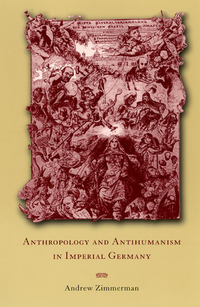Imagining the Balkans

Summary
If the Balkans hadn't existed, they would have been invented was the verdict of Count Hermann Keyserling in his famous 1928 publication, Europe. This book traces the relationship between the reality and the invention. Based on a rich selection of travelogues, diplomatic accounts, academic surveys, journalism, and belles-lettres in many languages, Imagining the Balkans explores the ontology of the Balkans from the eighteenth century to the present day, uncovering the ways in which an insidious intellectual tradition was constructed, became mythologized, and is still being transmitted as discourse.
The author, who was raised in the Balkans, is in a unique position to bring both scholarship and sympathy to her subject. A region geographically inextricable from Europe, yet culturally constructed as the other, the Balkans have often served as a repository of negative characteristics upon which a positive and self-congratulatory image of the European has been built. With this work, Todorova offers a timely, accessible study of how an innocent geographic appellation was transformed into one of the most powerful and widespread pejorative designations in modern history.
Similar Books
-
 Stendhal: The Red and the Black
Stendhal: The Red and the Blackby Stirling Haig
-
 Rituals of War: The Body and Violence in Mesopotamia
Rituals of War: The Body and Violence in Mesopotamiaby Zainab Bahrani
-
 Anthropology and Antihumanism in Imperial Germany
Anthropology and Antihumanism in Imperial Germanyby Andrew Zimmerman
-
 Medieval Identity Machines (Volume 35)
Medieval Identity Machines (Volume 35)by Jeffrey Jerome Cohen
-
 The Seduction of the Occult and the Rise of the Fantastic Tale
The Seduction of the Occult and the Rise of the Fantastic Taleby Dorothea E. Von Mucke
-
 Late-Medieval Prison Writing and the Politics of Autobiography
Late-Medieval Prison Writing and the Politics of Autobiographyby Joanna Summers
-

-
 Subversive Scribes and the Solomonic Narrative: A Rereading of 1 Kings 1-11
Subversive Scribes and the Solomonic Narrative: A Rereading of 1 Kings 1-11by Eric A. Seibert
-
 The English Civil Wars in the Literary Imagination
The English Civil Wars in the Literary Imaginationby Claude Summers
-
 An Erotic Philology of Golden Age Spain
An Erotic Philology of Golden Age Spainby Adrienne Laskier Martin